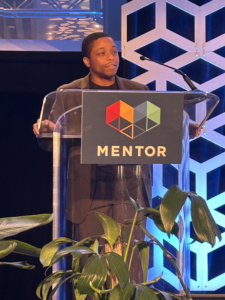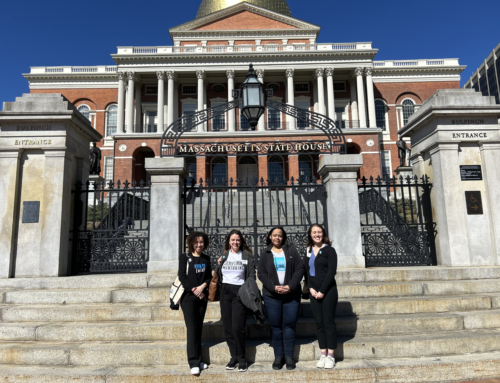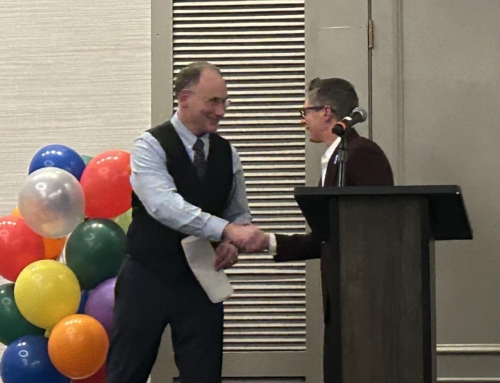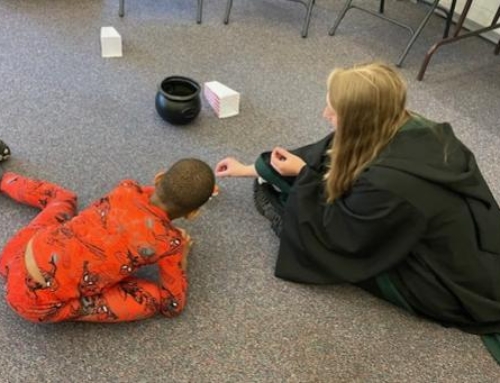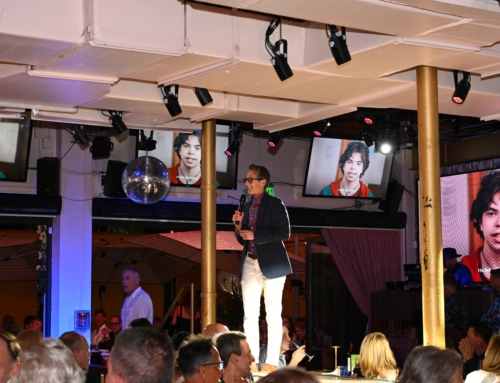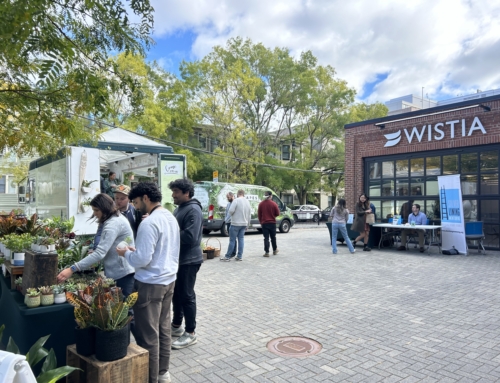Written by Sally Sanchez-Peña, Program Manager
MENTOR’s 2025 National Mentoring Summit, held in Washington, D.C., served as a hub for those who are passionate about mentoring, including young people, mentors, advocates, researchers, thought leaders, and other mentoring champions, united in their commitment to ensuring access to high quality mentoring for every young person.
Through insightful conversations, I gained a deeper understanding of how various practitioners are leveraging mentoring to support youth development in diverse ways, including promoting academic achievement and interpersonal skill building in girls by training mentoring professionals to deliver research backed programming. I was also reminded of the significant impact that networking can have when exploring career paths and about how mentoring can provide youth with the social capital needed to further their own successes. Lastly, I found myself engaged in numerous discussions about our evolving political landscape and one continuous theme emerged: social capital and community are the way forward.
Capitol Hill Day: Advocating for Mentoring Support
I had the opportunity to represent Silver Lining Mentoring on Capitol Hill Day, an annual advocacy day designed to amplify mentoring through 1:1 meetings with state representatives. I collaborated with other Massachusetts-based mentoring advocates to strategically engage our congressional representatives, with the goal of increasing their awareness around the impactful work we do and to directly ask for their support of increased funding for mentoring.
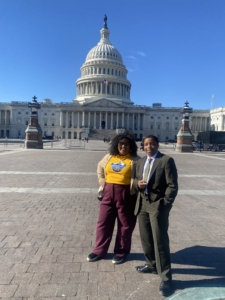
Sally and Eric on Capitol Hill Day
Following a training session from MENTOR’s policy and advocacy team, we prepared to ask Congress for their commitment to increase funding for mentoring and to co-sponsor at least three of our legislative priorities. In our conversations with legislative assistants and fellows at the offices of Senators Elizabeth Warren and Ed Markey, we provided personal anecdotes and shared data-driven outcomes to emphasize the value of addressing the relationship gap through mentoring initiatives. We highlighted the meaningful outcomes that we’ve observed when young people have access to a consistent mentor, including higher levels of self-esteem and confidence, increased access to social capital, and higher education completion rates.
We were also joined by SLM alumnus Eric James, who described his personal experiences with both the foster care system and with Silver Lining Mentoring. Eric’s firsthand accounts highlighted for legislative staff the impact that a consistent, caring mentor can have on the individual life trajectory of a young person and why it’s vital to support mentoring initiatives and funding.
Participating in Capitol Hill Day emphasized for me that we must continue to raise awareness and to elevate the impact of mentoring–especially to decision makers in Washington–to bring about meaningful, systemic change.
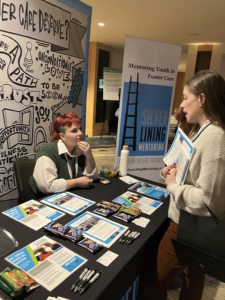
SLM Staff Suzannah Blass speaking with an attendee
Sharing Stories and Collaborating for Change
Capitol Hill Day was only the beginning of my Summit experience! In the days that followed, Silver Lining staff engaged in a variety of conference workshops and activities covering topics such as building social capital by leveraging technology and community, reaffirming spaces for youth of varying backgrounds, and building belonging and cultural competency, to name just a few.
Throughout the Summit, we received motivating and inspiring messages guiding us to focus on hope and the impact that we can have as a collective of practitioners, mentors, youth, and other proponents of mentoring. One moment that stood out to me was the Baltimore Urban Youth Collective’s reminder through song to, “Keep your head to the Sky”. This captivating performance lifted up the value of maintaining hope for the future and prompted us all to consider the ways we uplift our young people and each other.
We attended a deeply impactful plenary session on specialized mentoring models, which showcased a multitude of ways in which mentoring programs can adapt to meet the unique needs of the youth they support. During this session, both mentoring professionals and young people shared personal stories of how mentoring has made a difference in their lives. Sadie Allen, Youth Worker at the Division of Indian Work, spoke on a panel and shared, “Mentorship is harm reduction, it’s generational healing.” Eric also spoke to this audience and shared this about his mentor: “When she showed up, I felt less alone…The consistency she provided when others in my life couldn’t, helped me see what was possible for my future.” These perspectives on mentorship as a critical tool for long-term healing and growth deeply resonated with me, underscoring that, no matter the approach, mentoring is transformative in the lives of young people.
The Summit offered numerous insights that I believe will guide us throughout the rest of the year. As a Program Manager at Silver Lining Mentoring, I’ve been reflecting on how strategic partnerships and collaboration can shape the life trajectories of youth impacted by foster care, while also fostering greater hope for their futures. It’s evident that initiatives like Capitol Hill Day, building and strengthening partnerships, and ongoing efforts to share our expertise nationally will play a crucial role in advancing the impact of mentoring programs.
Community and Partnerships are the Way Forward

Baltimore Urban Youth Collective performing at the Summit
The Summit has sparked a renewed focus on growing the work we do through community and partnership building and sharing our best practices with mentoring professionals nationwide. For those of you who find yourselves inspired and committed to showing up for our young people as mentors, I encourage you to explore the opportunity to become a mentor for a young person impacted by foster care. Mentoring professionals can learn more about Silver Lining Institute’s no-cost training and consultation services, supported by our partnership with the National Mentoring Resource Center (NMRC), to amplify the impact of their mentoring programs.
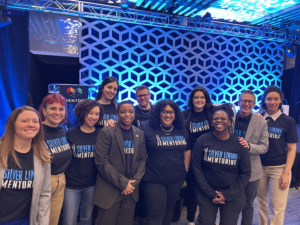
Members of the SLM team on the ground at the Summit
Thinking about the impact of our participation in Capitol Hill Day, anyone interested in topics of advocacy and policy can watch our Fostering Progress webinar on Getting Started with Policy Advocacy & Lived Experience. This resource offers practical tips to get started in engaging the voices of young people with lived experience in policy advocacy and includes insights from our former Lived Experience Fellow, Jarrett Harper.
Looking back on my experience at the National Mentoring Summit and Capitol Hill Day, I’m reflecting that now, more than ever, there’s a strong desire to cultivate community and belonging for our young people. The Summit served as a reaffirming reminder that, despite the ongoing challenges we face in improving outcomes for youth in care, as champions for mentoring, we hold a collective power to keep driving the mentoring movement forward.
